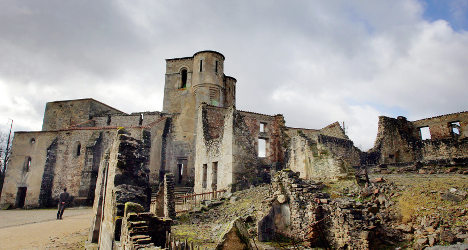The September 3rd-5th visit will begin in Paris for talks with French President Francois Hollande and Prime Minister Jean-Marc Ayrault.
Hollande will then travel with Gauck to Oradour-sur-Glane, a central French village almost wiped out in a Nazi massacre on June 10th, 1944, his office announced on Thursday.
Only six people survived the slaughter, in which 642 people – mainly women and children – were killed.
In France, the bloodshed has come to symbolise the depths of Nazi barbarity and the ruined village has been left as it was as a memorial.
The visit by Gauck, whose office is largely ceremonial, will end in the southern city of Marseille which is this year's European Capital of Culture.
"The president's visit (to Oradour-sur-Glane) is the first by a German head of state," Gauck's office said in a statement.
A spokesman declined to specify when Gauck would arrive.
A war crimes case was reopened in 2010 when a historian discovered documents implicating six suspects now aged in their 80s.
The suspects, aged 18 and 19 at the time, allegedly ordered the inhabitants, including 247 children, to assemble in the village square.
Women and children were then herded into the church which was pumped full of toxic gas and set on fire. The men were machine-gunned and burned – some still alive – in a barn.
The latest criminal case is still pending.
Gauck, a former East German human rights activist, has already paid two visits to the sites of Nazi mass killings in Europe including the Czech village of Lidice near Prague in 2012 and the Italian hamlet of Sant'Anna di Stazzema in March this year.



 Please whitelist us to continue reading.
Please whitelist us to continue reading.
Member comments